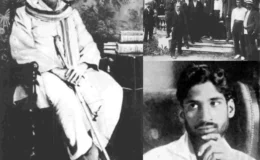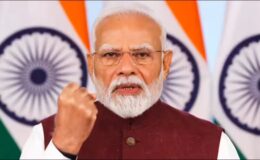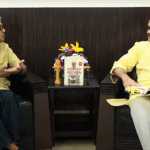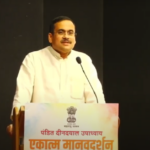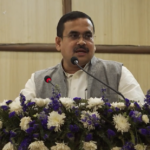Saffron watershed in UP marks the dawn of performance politics
- By : Anirban Ganguly
- Category : Articles
The sweeping and stunning electoral verdict in Uttar Pradesh in favour of Narendra Modi-led BJP has marked a new watershed in the history of Indian politics. It put to rest many narratives, exposed a number of readings and felled many theories while announcing, in no uncertain terms, a new beginning that aspires to usher in, as Prime Minister Modi says, a ‘New India.”
But perhaps the greatest lesson from the Uttar Pradesh verdict is that it has sounded the death knell of the politics of appeasement. As BJP president Amit Shah reminded us, the politics of appeasement has held hostage our national aspirations in the last seven decades.
Shah had played a decisive role in dealing the decisive blow to this negative politics. In fact, in every interview that he gave throughout the period of the campaign, apart from bullishly speaking on the milestones and initiatives of the Modi government that have actually made a remarkable difference to lives on the ground, Shah was categorical that the mandate in Uttar Pradesh will actually announce the end of the politics of dynastism, casteism and appeasement, and inaugurate an era of the politics of performance.
The decimation of the Congress, the trouncing of the Samajwadi Party and the near-obliteration of the Bahujan Samaj Party has actually proved Shah’s prescience. The politics of each of these three formations symbolised one of these dimensions—dynasty, caste and appeasement. Rahul Gandhi’s politics of confusion, opportunism and hate, Akhilesh Yadav’s politics of division and discrimination, and Mayawati’s caste-ridden politics, which had degenerated into a corporation for bartering votes, have been roundly dumped. This rejection has instilled fear in the advocates of false-secularism, in the “break-India” proponents, in those who have till now made a living out of demonising Modi-Shah duo and have reaped huge benefits in painting the bogey of an India under their siege.
These sections had a problem when Shah and Modi exposed how there was denominational discrimination in the state’s development. They were shaken when the duo called for an end to such discrimination. This section was also unnerved when they realised that the Modi-Shah duo was forcefully advocating the need to end discrimination towards a section of Indian women, who were held hostage to outdated and ludicrous system of “triple talaq”. Ironically, no “five-star” activist came forward to support this duo when they spoke of the need to end the practice. They were terrified when Shah-Modi spoke to the marginalised and reiterated their commitment to substantially ameliorate, empower and transform their lives. This is not the language that they would have wanted the duo to speak in! As the momentum of electioneering gathered steam, this section could see the spectre of defeat loom large.
So bitter is the taste of this defeat, so comprehensive is the rejection from sections that have been marginalised and dole-stricken for decades, that it has made frothing and irrelevant dynasty servitors, such as Mani Shankar Aiyar, speak of a “Modi-Myth” that has been accepted by the people. The arrogance is so deep in the dynasty, and those who serve it, that the people of India can be written off and portrayed as unthinking masses each time they opt for some formation beyond the dynasty and a leader beyond the “family”—especially if that leader happens to be Narendra Modi.
But for us, the greatest take-away from the Uttar Pradesh elections is that it has exposed the falsity of the politics of appeasement; the discerning and right thinking cannot differ with Shah on that.

